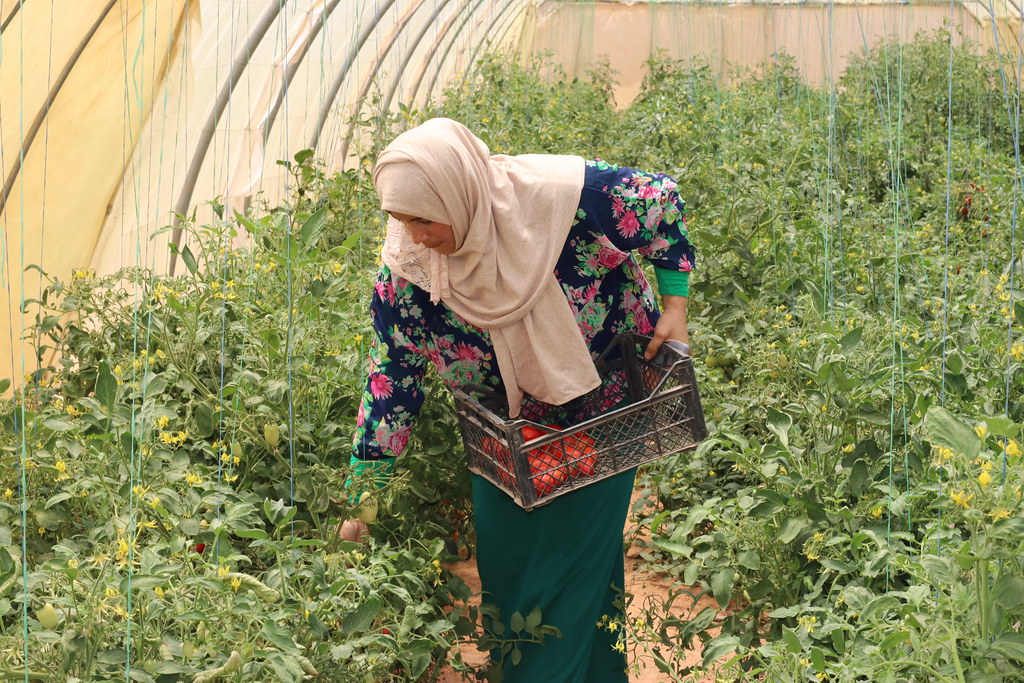Green Climate Fund gives go ahead to USD 33 million water project in Jordan

The Green Climate Fund recently green lighted a USD 33 million project to benefit rural communities facing water insecurity in the Hashemite Kingdom of Jordan.
Through a mix of infrastructure investments, innovative technologies, climate-smart agricultural practices and knowledge sharing, the project seeks to improve water use and availability and influence climate change policy and action.
At the request of the Government of the Hashemite Kingdom of Jordan, FAO designed the seven-year project, involving the FAO Investment Centre, country and regional offices and Office of Climate Change, Biodiversity and Environment.
FAO used innovative geospatial tools like Earth Map to understand better the climate risks and vulnerability in each targeted community.
More than 212,000 people in the Dead Sea basin, half of them women, stand to benefit.
Given women’s crucial role in agriculture and their ability to foster climate change adaptative practices, the project will promote rural women as agents of change and adaptation, said FAO Investment Centre Director Mohamed Manssouri.
Building on the success of the GIZ Water Wise Women Initiative in Jordan, the project will train 400 young women on state-of-the-art climate adaptive technologies and techniques, like the design of small irrigation schemes, fertigation, wicking beds and improved home gardening practices. They will also be trained on social media advocacy and agribusiness planning and development.
“Empowering women to become practitioners, leaders, educators and influencers on climate change adaptation is vital to behaviour change within households and communities,” Manssouri said.
Investing in improved water supply
Jordan’s farmers rely heavily on rainwater to grow their crops. But a long-term decline in rainfall has led to greater water scarcity.
A rural family of six currently receives about 6,000 litres of water once every week or two. This has to cover drinking, cooking, cleaning and personal hygiene needs – not to mention home gardens.
Buying water from tankers is expensive, about 7 euros for 1,000 litres, said Jacopo Monzini, an FAO natural resource management specialist.
To reduce dependency on private water tankers and increase overall water availability for households, the project will install rooftop rainwater harvesting systems on 7,850 rural homes and 400 public buildings.
“With the rooftop system, these households will be able to collect and store up to an additional 20,000 litres of water a year at no cost. That will allow families to use public water for drinking and the additional litres for all their other needs. They could even expand their home gardens, where they traditionally grow nutritious vegetables, herbs and olive trees,” Monzini said.
The project will also build reservoirs to store reclaimed water from wastewater treatment plants during the winter months. This water will then be distributed to farmers during the summer months when demand is at its highest.
Fields irrigated with reclaimed water will strictly be used to grow fodder crops. Robust and constant monitoring, technical assistance to farmers and evaluation support will ensure the quality of the water and soils of those farms connected to the treatment plants.
To this end, the project will work with farmers, the Ministry of Health, the Ministry of Environment and the Ministry of Water and Irrigation to ensure the strictest adherence to national and international standards related to the use of reclaimed water.
FAO will also assist the Ministry of Water and Irrigation in developing a water harvesting investment plan for the Dead Sea basin to enhance their capacity to plan and tailor proposals for new projects.
Investing in human capital
Farmer field schools and demonstrations will help reach a wider audience.
There, rural women and men will learn how climate-smart technologies, techniques and drought resistant varieties can increase agricultural productivity and ensure a more efficient use of water.
Representatives from the private sector, including input providers, irrigation scheme developers, extension services, NGOs and academia, will also take part.
In addition, the project will help update the national curriculum in agriculture, exposing a new generation of agricultural engineers and specialists to the latest in climate adaptive technologies and practices.
Tackling development challenges
FAO is the accredited entity and, along with the UN Development Programme, one of the executing entities for the project, which is in line with Jordan’s 2017 Green Growth Plan.
FAO and the UNDP will work closely with the country’s Ministry of Environment, Ministry of Water and Irrigation and the Ministry of Agriculture on implementation.
Overall, the project is expected to help Jordan make progress on big development challenges – from adapting to climate change, improving water use and promoting green growth to reducing poverty, hunger and gender inequality.
